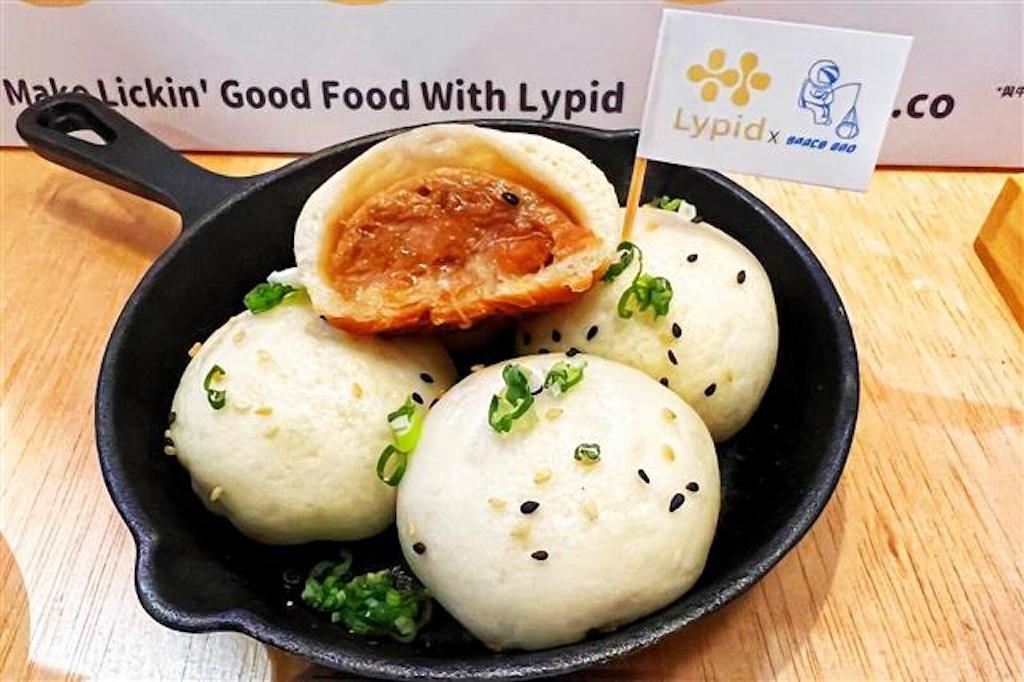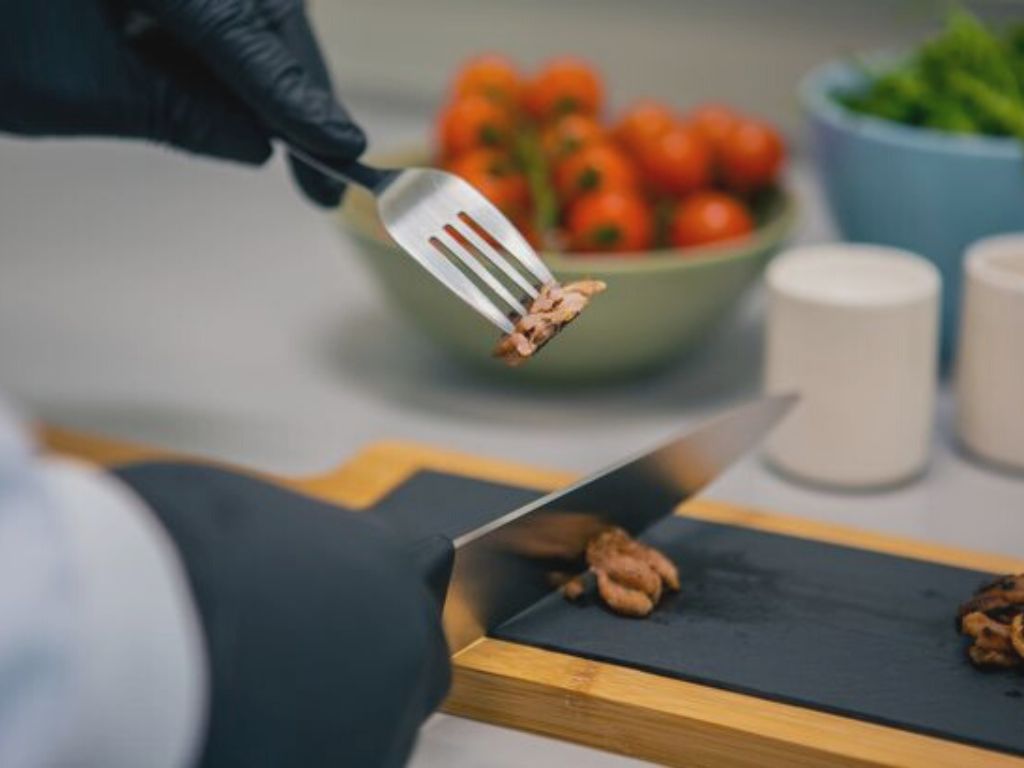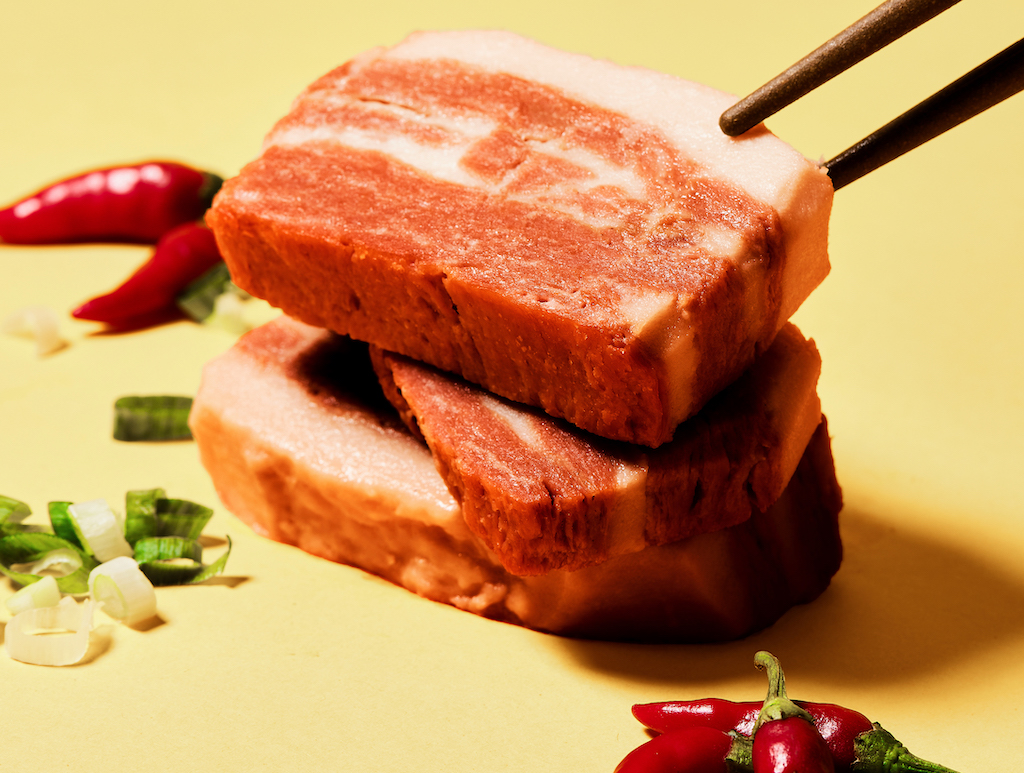3 Mins Read
Taiwanese-U.S. food-tech company Lypid unveiled vegan pork belly made from its patented PhytoFat at the recent Future Food-Tech summit held in San Francisco earlier this month.
The product ist the first release of Lypid’s upcoming line of plant-based products. According to Dr. Jen-Yu Huang, Lypid’s co-founder and CEO, there is a lack of solid, whole-cut alternative proteins on the market. “Our Pork Belly will revolutionize the food industry and provide environmentally conscious options for diners who crave the texture, taste, and mouthfeel of pork belly,” he said. Dr. Huang was recently included in the 2022 Forbes “30 Under 30” list.
Vegan pork belly
Lypid’s pork belly marks the company’s entry into the plant-based meat market. Dr. Michelle Lee, Lypid’s Co-founder and CTO, explained that the company combined its patented PhytoFat with a unique fibrous protein alternative to create an authentic pork belly experience. Several celebrated Bay Area chefs have begun testing the plant-based pork belly, with the goal of introducing the product to menus in the near future.
The Pork Belly was served at the Future Food-Tech summit with Adobo Garlic Fried Rice prepared by San Francisco Marriott Marquis’ Executive Chef David Hollands and Executive Sous Chef Bernardita Gotis. “When it’s cooked, it behaves like pork belly – it becomes crispy and doesn’t solidify immediately,” Hollands said. “Not all vegan products perform like the real thing.”
Sonalie Figueiras, Green Queen‘s founder and editor in chief tasted the pork belly at the summit and said: “As someone who grew up in Hong Kong, I’ve eaten my fair share of pork belly, I was amazed. The texture was uncanny and it is savoury like animal fat.”

PhytoFat recently took home the first-place prize for “Ingredient Innovation” at FoodBev Media’s World Food Innovation Awards in 2023. The company’s Pork Belly was also a finalist in the “Plant-based Product” and “Technology Innovation” categories.
Last August, more than 500 Louisa Coffee shops across Taiwan introduced vegan burgers made with Lypid’s proprietary vegan PhytoFat. The company raised more than $4 million in seed funding last spring to accelerate its product development and expansion plans.
Pork successors loom large
Pork is the most widely consumed meat in the world, specifically across Asia. It makes up 36 percent of total global meat consumption, according to the USDA. But as consumers seek to diversify their protein, sustainable options are taking priority. Hong Kong-based Omni Foods is seeing success with its plant-based pork in Asia and the U.S., among other markets.
Last month, the U.K. saw the country’s first cultivated pork debut. BSF Enterprises said its subsidiary 3D Bio-Tissues had successfully created a steak made from pork cells.

Not all companies are thriving, however. Last week, cultivated pork producer New Age Eats announced it was ceasing operations.
“Creating the experience of meat without slaughter is extremely difficult,” New Age founder and CEO Brian Spears said in a statement. “We start with biotech borrowed from human health applications designed for high-cost, low-volume products. We worked to flip to low-cost, high-volume products. That is expensive, takes time, and needs a lot of patient capital.”



